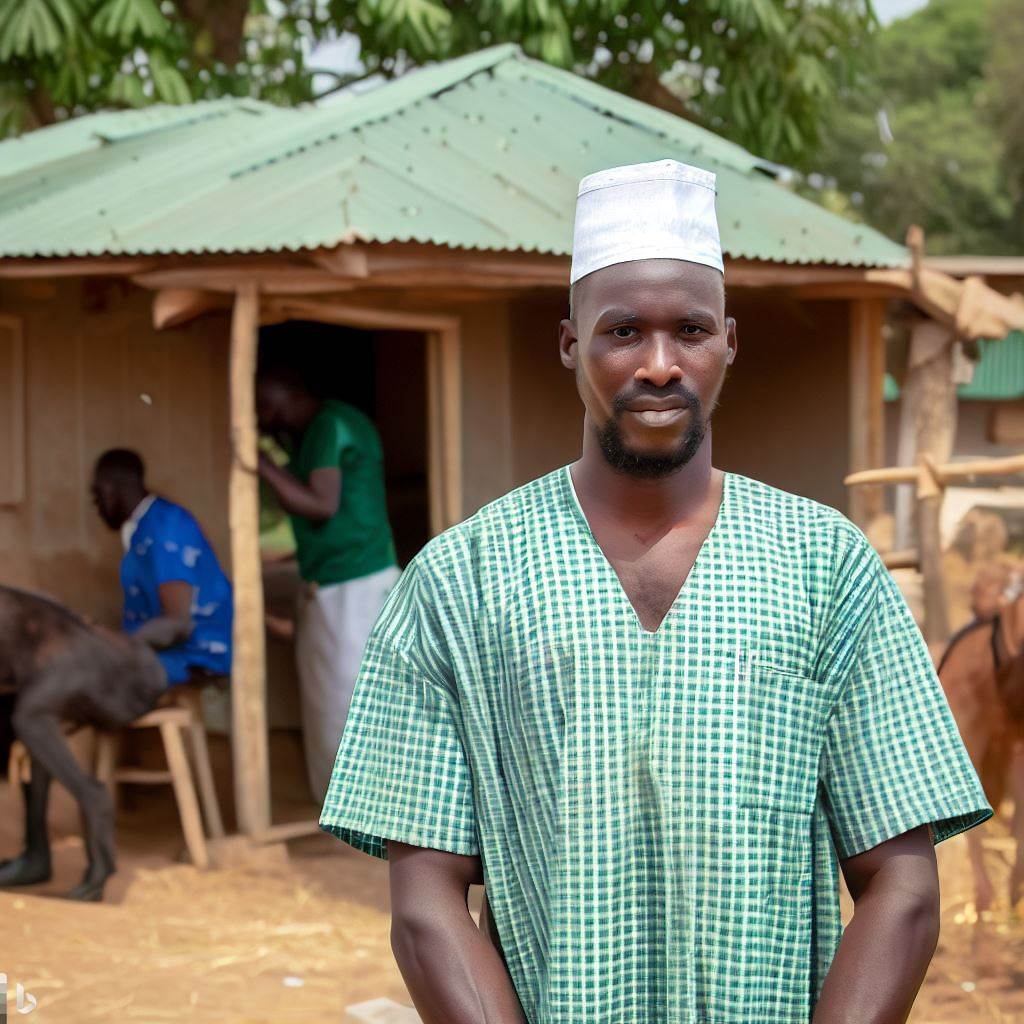Introduction
Understanding the Education Path for Marriage Family Therapists in Nigeria
Promoting healthy relationships and effectively addressing family issues hinges upon the practice of marriage and family therapy.
Within Nigeria, the significance of marriage and family therapy is on the rise, underscoring the growing importance of this field.
This blog post is dedicated to illuminating the education path designed for individuals aspiring to become proficient marriage and family therapists in Nigeria.
Role of Marriage & Family Therapists
Definition and scope of marriage and family therapy
- Marriage and Family Therapy (MFT) is a specialized field within counseling that focuses on relationships.
- MFTs help couples, families, and individuals overcome challenges and improve their relationships.
- The scope of MFT includes addressing issues such as communication problems, mental health, and family dynamics.
- MFTs use various therapeutic techniques tailored to meet the unique needs of each individual, couple, or family.
- They aim to promote understanding, resolve conflicts, and enhance overall relationship satisfaction.
Explanation of the impact of MFTs on individuals, couples, and families
- MFTs play a crucial role in enhancing individual well-being within the context of relationships.
- They help individuals gain insight into their own behaviors and emotions, leading to personal growth.
- In couples therapy, MFTs assist partners in improving communication, deepening intimacy, and resolving conflicts.
- They provide a safe space for couples to express their feelings, heal wounds, and rebuild trust.
- In family therapy, MFTs work with families to strengthen relationships and address conflict.
- They facilitate effective communication, promote understanding, and foster a supportive family environment.
- MFTs also address issues related to parenting, divorce, grief, and other challenges faced by families.
- The impact of MFTs extends beyond the therapy room, positively influencing the overall well-being of communities.
Importance of specialized professionals in addressing relational issues
- Relational issues can have a significant impact on individuals’ mental health and overall well-being.
- Having specialized professionals like MFTs is crucial in effectively addressing these issues.
- MFTs undergo extensive training in the field of relationship dynamics and therapy techniques.
- They have a deep understanding of the complexities involved in interpersonal relationships.
- MFTs are equipped with the skills to navigate complex family systems and guide clients towards positive change.
- They provide a non-judgmental and unbiased space for individuals, couples, and families to explore their challenges.
- MFTs are trained to work with diverse populations, respecting cultural, religious, and individual differences.
- The presence of specialized professionals ensures that individuals receive the most appropriate and effective therapy.
Basically, marriage and family therapists (MFTs) play a vital role in addressing relational issues and improving the well-being of individuals, couples, and families.
Their scope extends beyond resolving conflicts and enhancing communication to fostering personal growth and creating supportive environments.
As specialized professionals, MFTs bring the necessary expertise and understanding to effectively guide clients in navigating complex relationship dynamics.
Their impact on individuals and communities is far-reaching, emphasizing the importance of their role in the field of therapy.
Read: Importance of Culturally Sensitive Counseling in Nigeria
Education Requirements for Marriage & Family Therapists in Nigeria
Undergraduate degree
Recommended fields of study
Marriage and Family Therapy programs typically require a bachelor’s degree in psychology, counseling, or a related field.
Core courses and key competencies
Undergraduate students should focus on courses such as abnormal psychology, human development, and interpersonal communication.
Graduate education
Master’s degree programs in MFT
To become a licensed marriage and family therapist in Nigeria, a master’s degree in Marriage and Family Therapy is required.
Accredited institutions offering MFT programs in Nigeria
Several institutions in Nigeria offer accredited graduate programs in Marriage and Family Therapy.
Internship and supervised clinical practice
Importance of hands-on experience
Hands-on experience is crucial for Marriage and Family Therapists to develop their clinical skills and gain practical knowledge.
Requirements for clinical hours and supervision
Marriage and Family Therapists in Nigeria are required to complete a specific number of clinical hours under supervision.
Aspiring Marriage and Family Therapists in Nigeria must fulfill certain education requirements in order to practice in the field effectively.
This blog section will outline the necessary steps and qualifications for individuals interested in pursuing a career as a Marriage and Family Therapist in Nigeria.
Undergraduate degree
1. Recommended fields of study
In order to pursue a career in Marriage and Family Therapy, it is highly recommended to obtain a bachelor’s degree in psychology, counseling, or a related field.
These disciplines provide a solid foundation for understanding human behavior and relationships.
2. Core courses and key competencies
Undergraduate students interested in becoming Marriage and Family Therapists should focus on taking core courses that are relevant to the field.
This includes subjects such as abnormal psychology, human development, interpersonal communication, and counseling techniques.
These courses provide essential knowledge and skills that are required for effective therapy practice.
Graduate education
1. Master’s degree programs in MFT
To become a licensed Marriage and Family Therapist in Nigeria, individuals must complete a master’s degree program in Marriage and Family Therapy.
These programs are designed to provide advanced training and specialization in the field.
The curriculum typically includes coursework on theories and techniques of therapy, family dynamics, ethical practices, and cultural competency.
2. Accredited institutions offering MFT programs in Nigeria
There are several institutions in Nigeria that offer accredited graduate programs in Marriage and Family Therapy.
It is important for aspiring therapists to choose a program that is recognized and approved by relevant professional bodies to ensure the quality of the education received.
Internship and supervised clinical practice
1. Importance of hands-on experience
Hands-on experience is a crucial component of the education path for Marriage and Family Therapists.
It allows students to apply the theoretical knowledge gained during their studies in real-life therapeutic settings.
This practical experience helps develop clinical skills, enhances understanding of client dynamics, and fosters professional growth.
2. Requirements for clinical hours and supervision
To become licensed as a Marriage and Family Therapist in Nigeria, individuals are required to complete a specific number of clinical hours under the supervision of a licensed therapist.
This supervised clinical practice ensures that therapists gain the necessary skills and knowledge to provide effective therapy to individuals, couples, and families.
In short, a solid educational foundation is essential for individuals aspiring to become Marriage and Family Therapists in Nigeria.
The education requirements include obtaining an undergraduate degree in psychology, counseling, or a related field, pursuing a master’s degree in Marriage and Family Therapy, and gaining hands-on experience through internships and supervised clinical practice.
By fulfilling these requirements, aspiring therapists can acquire the necessary knowledge and skills to provide effective therapeutic support to individuals, couples, and families in Nigeria.
Read: What To Expect From Your Psychiatrist Visit in Nigeria

Professional Licensure and Certification
National requirements for MFT licensure
- In Nigeria, Marriage & Family Therapists (MFTs) must meet specific national requirements for licensure.
- These requirements ensure that MFTs are adequately trained and competent to provide therapy services.
- National requirements typically include completing an accredited MFT program and obtaining a certain number of supervised clinical hours.
- MFTs may also need to pass a national licensing examination to demonstrate their knowledge and skills.
State or regional licensing boards
- State or regional licensing boards play a crucial role in the licensure process for MFTs in Nigeria.
- These boards review and evaluate the qualifications of aspiring MFTs to ensure compliance with local regulations.
- Licensing boards may have additional requirements beyond the national standards, such as additional clinical experience or coursework.
- It is essential for MFTs to research and understand the specific requirements of their state or region before pursuing licensure.
Examinations and assessments
- Examinations and assessments are an integral part of the licensure process for MFTs in Nigeria.
- MFTs are required to pass a licensing examination that tests their knowledge and competence in the field.
- The examination may include multiple-choice questions, case studies, and practical assessments.
- Successful completion of the examination demonstrates that an MFT has the necessary skills to practice effectively.
Continuing education and professional development
- Continuing education and professional development are crucial for MFTs to maintain their licensure in Nigeria.
- MFTs are required to participate in ongoing training and education to stay updated with the latest research and therapeutic techniques.
- Continuing education programs may cover various topics, such as ethical practice, cultural competence, and evidence-based interventions.
- MFTs must fulfill a certain number of continuing education hours within a specified time period to renew their license.
Basically, the path to becoming a licensed Marriage & Family Therapist (MFT) in Nigeria involves meeting national requirements, obtaining approval from state or regional licensing boards, passing examinations, and engaging in continuing education.
These steps ensure that MFTs are qualified and competent to provide therapy services to individuals, couples, and families.
It is essential for aspiring MFTs to thoroughly understand and comply with the licensure process to pursue a successful career in the field of marriage and family therapy.
Read: Nigeria’s Fight Against Mental Illness: A Tale of Psychiatrist
Career Prospects and Opportunities
Demand for MFTs in Nigeria
MFTs are in high demand in Nigeria due to the country’s increasing recognition of the importance of mental health and family dynamics.
There is a growing need for qualified professionals who can provide counseling and therapy to individuals and families.
MFTs play a crucial role in addressing issues such as marital conflicts, family disputes, and mental health disorders.
Potential work settings
1. Private practice
MFTs have the option to set up their private practice, offering therapy services to individuals and families.
This gives them the freedom to work independently and set their own schedule and rates.
2. Marriage counseling centers
MFTs can find employment in specialized centers that focus on providing marriage and family counseling services.
These centers often cater to individuals seeking help in resolving relationship issues and improving family dynamics.
3. Hospitals and healthcare facilities
MFTs can work in hospitals and healthcare facilities, collaborating with other healthcare professionals in treating patients.
They can contribute to comprehensive treatment plans for individuals struggling with mental health and family-related issues.
4. Educational institutions
MFTs can work in educational institutions such as colleges and universities, offering counseling services to students and faculty.
They can also play a vital role in providing guidance and support to students dealing with emotional and behavioral challenges.
Salary expectations and benefits
The salary expectations for MFTs in Nigeria vary depending on factors such as experience, qualifications, and work setting.
Generally, MFTs can expect a competitive salary that is commensurate with their skills and expertise.
In addition to salary, MFTs may also receive benefits such as health insurance, retirement plans, and paid leave.
These benefits help to attract and retain qualified professionals in the field, ensuring quality mental health services in Nigeria.
Furthermore, MFTs have the opportunity for professional growth and advancement through continuous education and specialization.
By keeping up with the latest research and developments in the field, MFTs can enhance their knowledge and skills, leading to better career prospects.
Overall, the career prospects and opportunities for MFTs in Nigeria are promising, with a growing demand for their services.
As the importance of mental health and family dynamics continues to gain recognition, the need for qualified MFTs will only increase.
Whether working in private practice, counseling centers, healthcare facilities, or educational institutions, MFTs have the opportunity to make a meaningful impact on individuals and families in Nigeria.
With competitive salaries, benefits, and opportunities for professional growth, pursuing a career as an MFT can be both fulfilling and rewarding.
Read: Telepsychiatry in Nigeria: Prospects and Challenges
Challenges and Future Outlook
Addressing cultural barriers and stigmas
- Marriage and family therapy faces cultural challenges in Nigeria due to traditional beliefs and norms.
- Strict gender roles and societal expectations can make it difficult for individuals to seek therapy.
- Therapists need to be culturally sensitive and aware to gain trust and address these barriers.
- Education and awareness campaigns can help debunk myths and reduce stigmas associated with therapy.
- Collaboration with community leaders and religious institutions can be instrumental in changing perceptions.
Advocacy for MFT services in Nigeria
- Advocacy efforts are necessary to promote the value and importance of MFT services in Nigeria.
- Increased funding and support from the government will help foster the growth of the field.
- MFT associations and professionals need to actively engage in advocacy work to influence policy changes.
- Collaboration with other mental health stakeholders can amplify the voice of MFT professionals.
- Continued education and research on the efficacy of MFT services can strengthen advocacy efforts.
Potential for growth and advancement in the field
- The field of MFT in Nigeria has immense potential for growth and advancement.
- As more people become aware of the benefits of therapy, the demand for MFT services will increase.
- There is a need to expand educational programs and training opportunities for aspiring MFT professionals.
- Increased collaboration with universities and academic institutions can elevate the status of MFT in Nigeria.
- Integration of technology and teletherapy can enhance accessibility and reach of MFT services.
- Continued research and professional development will contribute to the advancement of MFT in Nigeria.
Essentially, navigating the education path to become a Marriage and Family Therapist in Nigeria comes with its challenges.
However, with a commitment to addressing cultural barriers, advocating for the value of MFT services, and recognizing the potential for growth and advancement in the field, the future outlook is promising.
By embracing culturally sensitive approaches, engaging in advocacy efforts, and fostering collaboration, MFT professionals can contribute to the well-being of individuals, families, and communities in Nigeria.
Conclusion
Recap of key points discussed
The education path for Marriage & Family Therapists in Nigeria requires:
- Completion of a Bachelor’s degree in a related field.
- Pursuing a Master’s degree in Marriage & Family Therapy or a related discipline.
- Gaining practical experience through internships or supervised clinical work.
- Obtaining licensure from relevant regulatory bodies, such as the Nigerian Association of Clinical Psychologists.
- Continuing education and professional development to stay updated with current practices.
Encouragement for aspiring MFTs in Nigeria
For those aspiring to become Marriage & Family Therapists in Nigeria, it is important to remain dedicated to their goals and pursue the necessary educational and training requirements.
Despite the challenges present in the field, the impact and potential for positive change in individuals, couples, and families make it a rewarding profession.
Final thoughts on the importance of marriage and family therapy
Marriage and family therapy play a crucial role in addressing the unique challenges faced by individuals, couples, and families in Nigeria.
By providing a safe and supportive environment, MFTs can help promote healthy relationships, enhance communication, and strengthen family systems.
The importance of this field cannot be overstated, as it contributes to the overall well-being and stability of Nigerian families and society as a whole.




